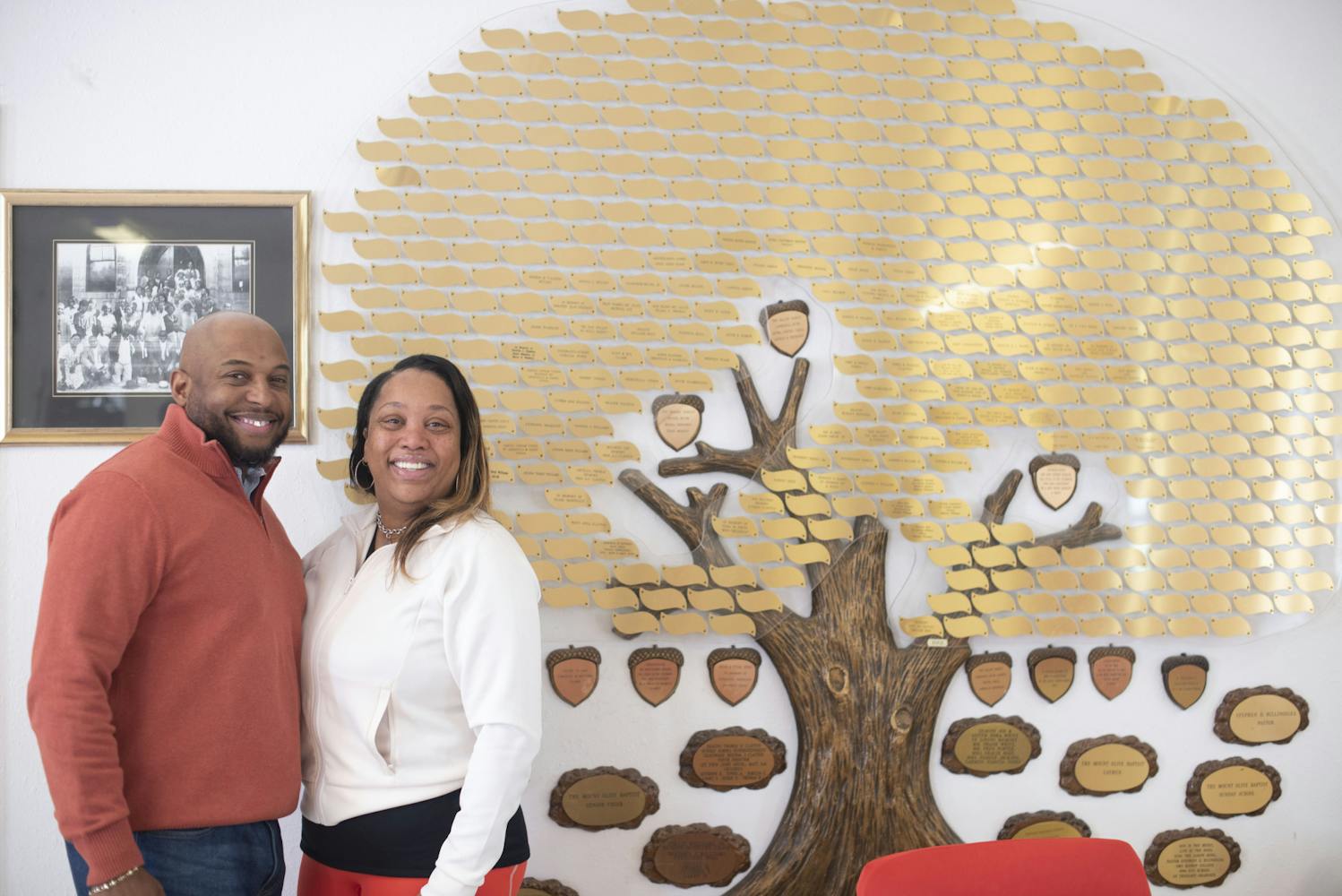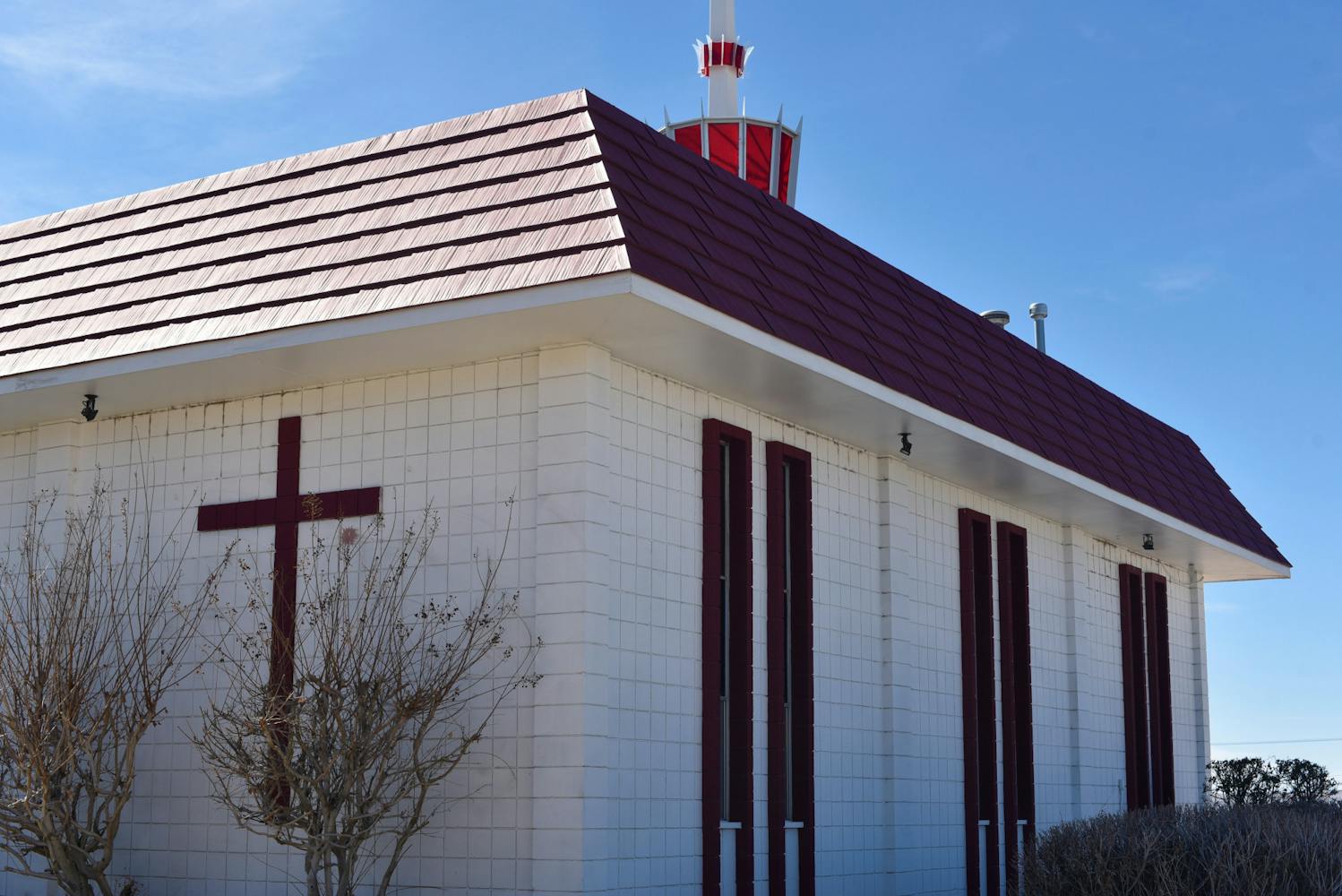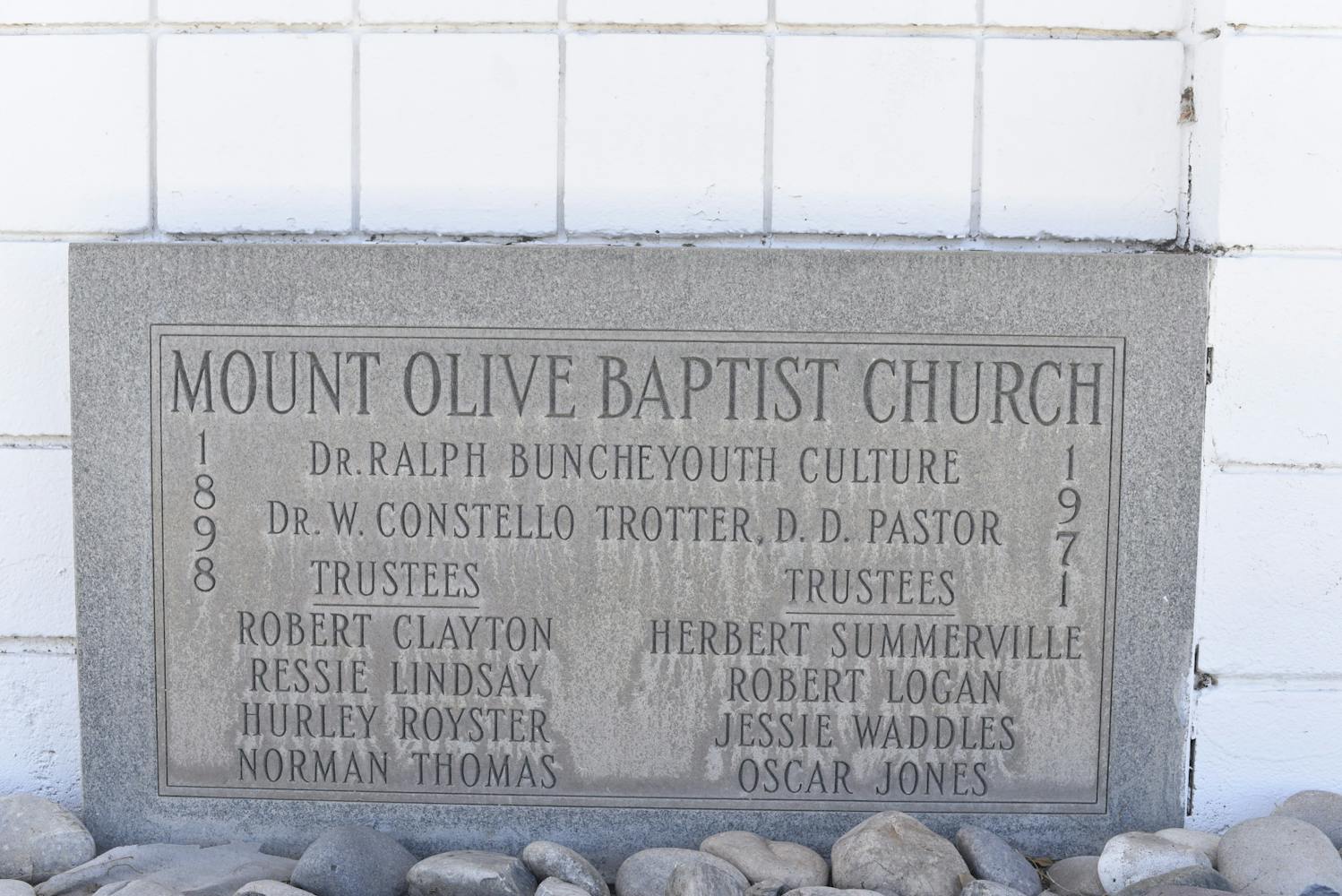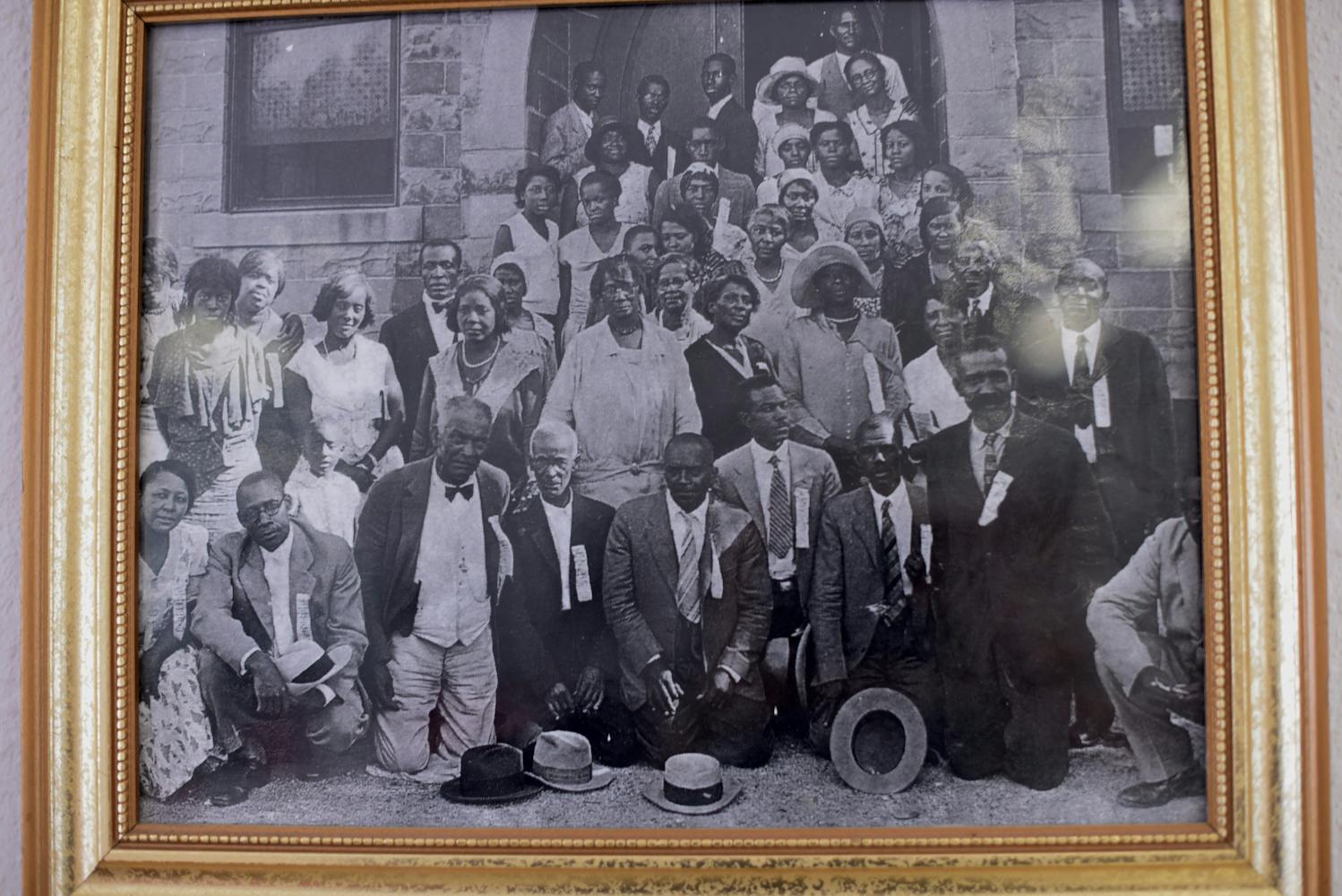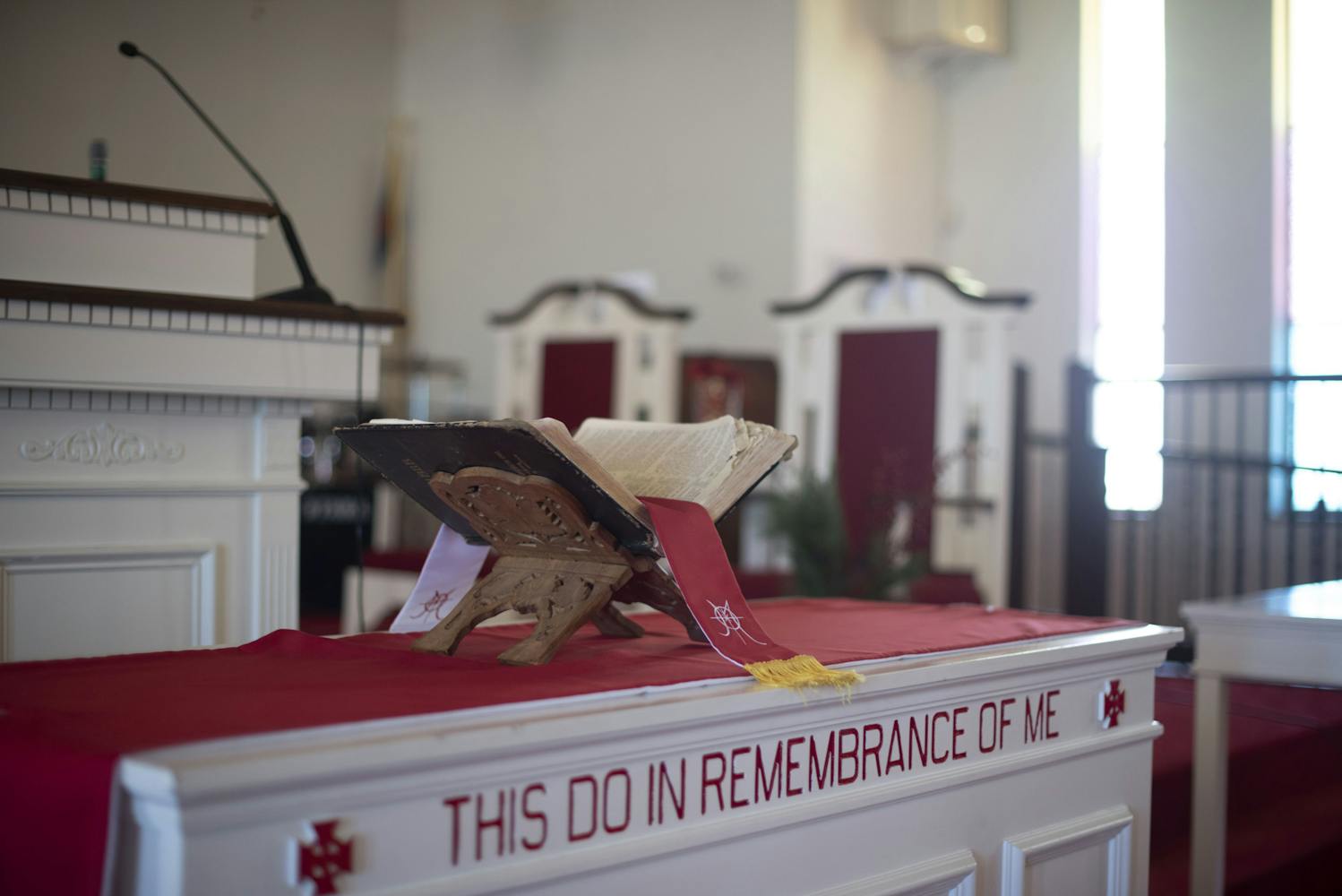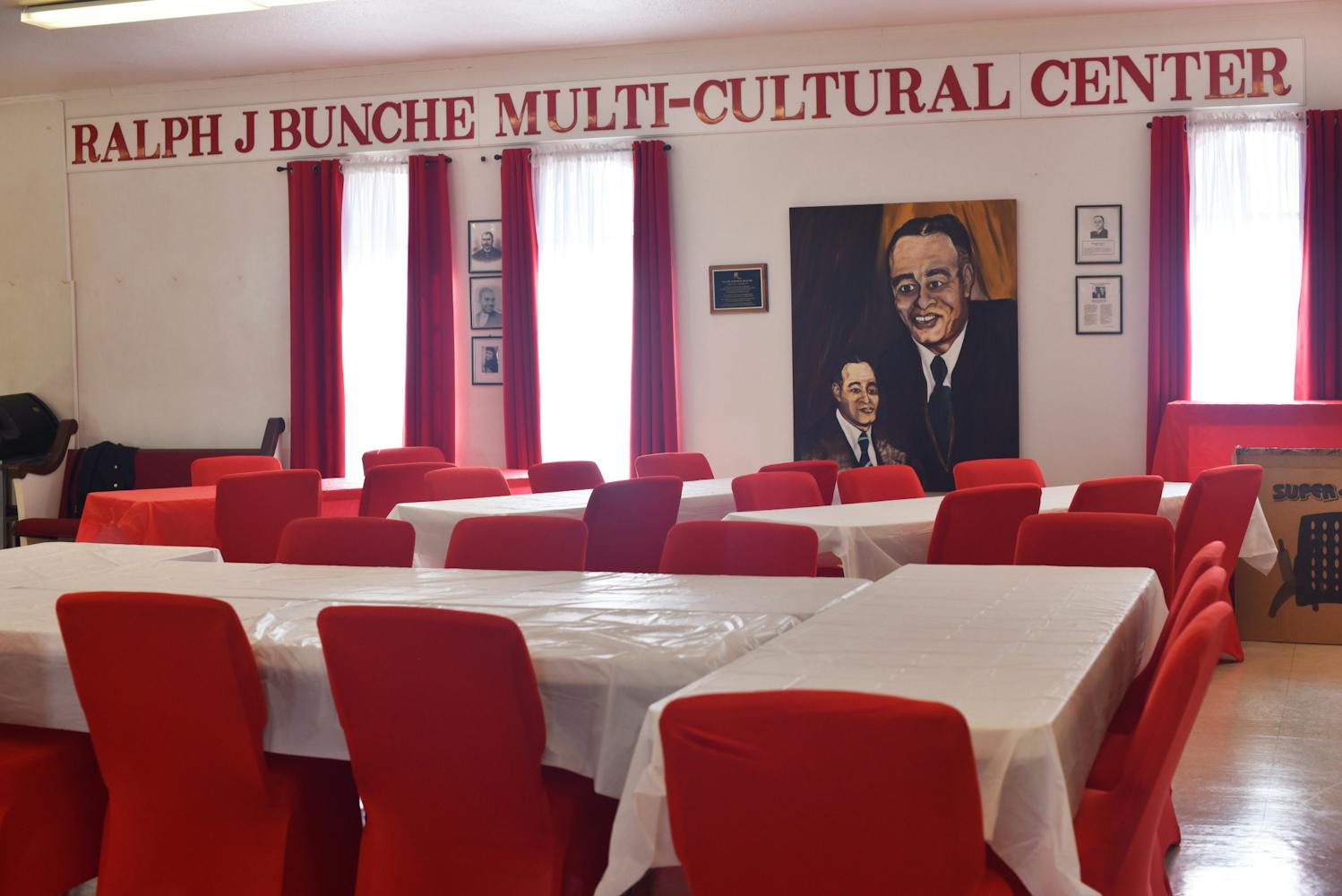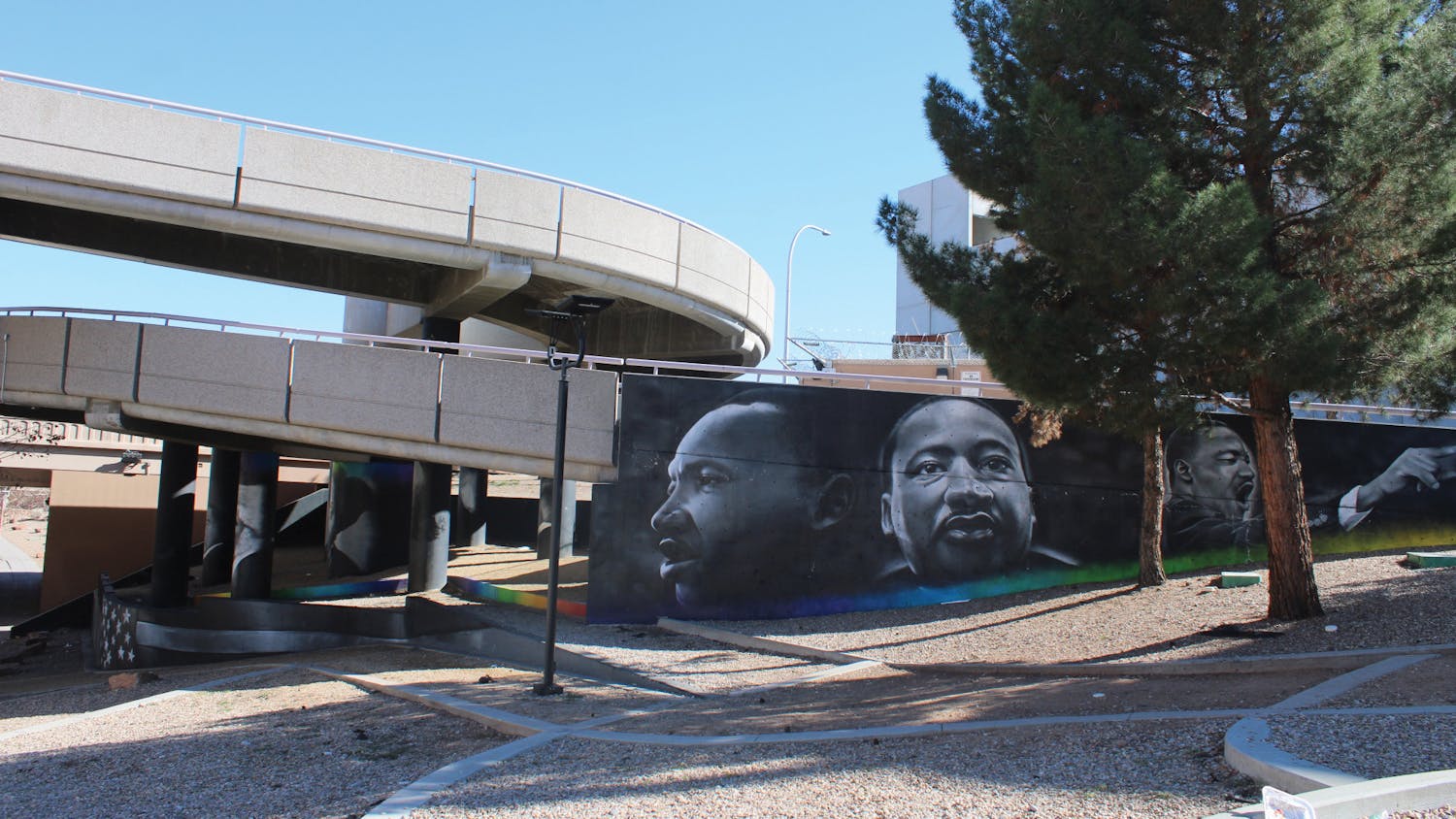When Tabytha Watson moved to New Mexico from Texas in 1898, the state did not have a Baptist church. To satisfy that need, Watson began organizing prayer days and Sunday school classes in her Albuquerque home located on Fourth St. and Copper Ave., according to Historic Fairview Cemetery. However, her ministry didn’t end there.
One year later, Watson sought expansion and led the formation of the Mount Olive Baptist Church. Together with her church members, Watson raised enough funds to purchase a $135 lot on Lead Ave. Soon after, services moved from Watson’s home to the new building in Downtown Albuquerque, according to Historic Fairview Cemetery.
Today, Mt. Olive is recognized as the first Black Baptist Church to open its doors in New Mexico.
“We see Tabytha Watson as a remarkable woman, because when she came to New Mexico there were no Baptist churches here,” Barbara Williams, former Mission President and Church Mother, said.
The first baptism services at Mt. Olive took place in the Rio Grande, according to Black Past. The church has been in operation ever since.
Williams joined the church in 1974, two years after the original church moved from the downtown location to its new one on University Blvd. and Gibson Blvd., Williams said.
Current Mt. Olive Head Pastor Sidney Miller said the church moved from its original location because “they were wanting to get a foundational spot where they can increase the wealth in the Black community because there was such a disparity.”
Some of the first Black Americans that moved to New Mexico in the early 1900s came from the Southeast in search of a better life. Some were former military, according to Black Past.
“Many migrated from the south to get away from slavery and find land and start anew in New Mexico,” Miller said.
At 92, Williams is still active in church activities. Her latest initiative is called “The Legacy Room,” which will be housed in the current church building. It will highlight the expansive history of the church and the role it plays in the State’s history.
The church’s Ralph J. Bunche Multi-Cultural Center room features framed photos exhibiting the history around Mt. Olive. Miller pointed out that the pictures are missing story descriptions. This would be the role of the Legacy Room.
One photo on the wall depicts John Collins – a Buffalo Soldier and the son of an enslaved individual, Miller said. Collins attended Mt. Olive.
Get content from The Daily Lobo delivered to your inbox
“We want everyone to know how intricate the Mt. Olive Church was, not only in the community, but in the whole state,” Miller said. “We need to have these kinds of things in order to know more about our culture.”
Miller is particularly passionate about sharing the history at Mt. Olive because of the erasure of critical race theory in educational institutions – especially in his home state of Arkansas, he said.
“This church has always been strong in civil rights,” Miller said. “We want the word to get out, how instrumental Mt. Olive was in this city, and for it not to be forgotten.”
Ralph Bunche, who the Multi-Cultural Center room is named after, was a political scientist, diplomat and civil rights leader. As a child, he moved to Albuquerque with his family. He was also a member of Mt. Olive Church.
Later in life, Bunche was a founding member of the United Nations, and was the first Black American to win a Nobel Peace Prize for his work in Palestine in 1949. He was an active supporter of Martin Luther King Jr. and marched with King twice, according to a 2004 article from The Perspective that was posted on the church’s wall.
Church Mother Luther May Golston recalled memories of singing in Mt. Olive’s choir.
“My best time was singing in the choir,” Golston said. “When they built this church here, the choir used to wear robes, and we used to march in and everybody stood up until we got to the choir stands.”
Today, the church is still involved in the community with several outreach programs that provide food and assistance to families in need. During the COVID-19 pandemic, church members handed out Smith’s gift cards to community members, Williams said.
“It’s always been a social church. We were known for our good food. Whenever there was a 3:00 service, everyone would always like to come over here and eat,” Golston said. “Mt. Olive has always been known for our hospitality.”
The church is holding an Easter luncheon on Sunday, March 31.
“The state is 112 years old, and Mt. Olive is older than the state,” Williams said.
Paloma Chapa is the multimedia editor for the Daily Lobo. She can be reached at multimedia@dailylobo.com or on Twitter @paloma_chapa88
Leila Chapa is a freelance reporter for the Daily Lobo. She can be reached at culture@dailylobo.com or on Twitter @lchapa06
Leila Chapa is the social media editor for the Daily Lobo. She can be reached at socialmedia@dailylobo.com or on X @lchapa06
Paloma Chapa is the multimedia editor for the Daily Lobo. She can be reached at multimedia@dailylobo.com or on Twitter @paloma_chapa88


